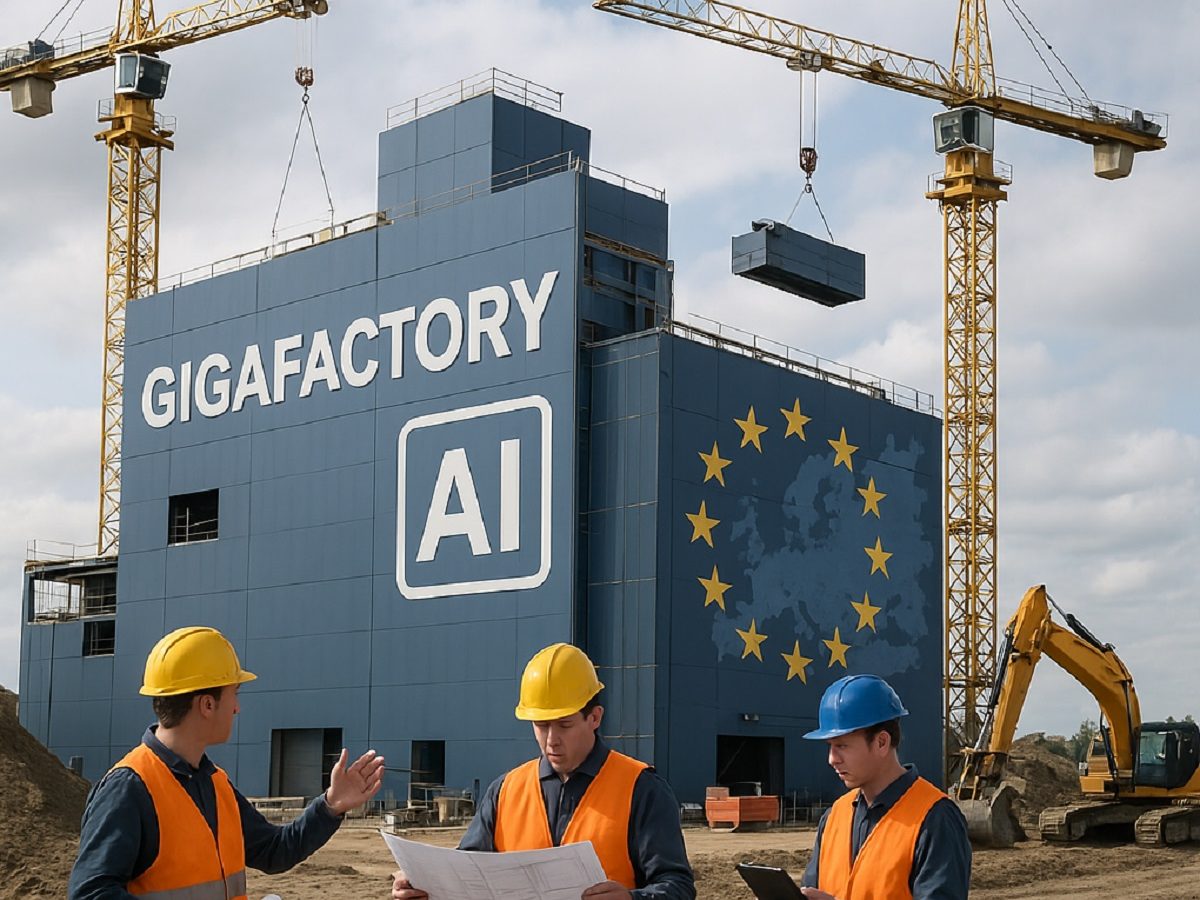
AI gigafactories: the European Union allocates €20 billion for 5 new sites
Europe is ready to embrace AI gigafactories. How? Through “Invest AI,” a massive €200 billion initiative aimed at developing advanced infrastructure for training artificial intelligence models. Of that total, €20 billion will be used to build five new facilities across various European countries by the end of the year.
These gigafactories are part of a broader push to reduce Europe’s dependence in critical sectors, particularly AI and supercomputing. The European Commission, which just unveiled its new action plan, is looking to attract private investment to support this effort.
Not just batteries anymore
Before diving into the details, it’s worth revisiting the origin of the term “gigafactory.” Originally, it referred to large-scale battery plants producing lithium-ion batteries for electric vehicles, aiming to reduce production costs and increase availability. Today, the term also applies to high-capacity computing facilities built to train AI systems.
What AI gigafactories will do
These next-generation gigafactories will serve several key purposes:
- Train complex AI models for critical sectors such as medicine and science.
- Drive innovation and research in artificial intelligence.
- Provide advanced computational resources for developing and deploying AI applications.
With this investment, the EU aims to remain competitive in the global AI race, while also ensuring technological independence and encouraging the development of ethical, responsible AI systems.
Europe’s strategy for AI and gigafactories
The new strategy, structured around five pillars, was outlined by Henna Virkkunen, Vice President of the Commission in charge of technological sovereignty, security, and democracy.
The first pillar focuses on strengthening Europe’s public AI infrastructure, making it easier for innovators and researchers to train cutting-edge models.
“We are setting up the first AI factories by enhancing our public supercomputing network for AI,” said Virkkunen. “We will also build AI gigafactories, which will include massive computing power and data centers.”
These high-tech facilities will host the training of advanced AI systems in areas deemed strategic, especially in healthcare and science. Each site will host about 100,000 dedicated chips, with performance up to four times higher than today’s top facilities.
Public-private partnerships at the core
The European Commission plans to roll out a public-private partnership model, with direct public grants covering part of the investment and private promoters financing the rest. The overall call for proposals will launch soon, while the specific tender for building the AI gigafactories is expected in Q4 2025, coordinated by the EuroHPC Joint Undertaking.
Data access and strategic sectors
The second pillar of the EU’s plan centers on access to high-quality data for AI development. A dedicated data strategy will be introduced later this year. Another crucial element is the adoption of AI in key strategic sectors for Europe.
“Europe is committed to becoming a global leader in AI,” said Virkkunen during a hearing at the EU Parliament’s Internal Market Committee. “AI is not only a driver of competitiveness but also vital to supporting our sovereignty and democratic values. The race for AI leadership is far from over.”
The fifth and final pillar is the AI Act, recently approved by the European Parliament. The Commission will also establish a helpdesk to support implementation and provide clarity on compliance with the new regulation.
Italy’s battery gigafactory expands
Meanwhile, funding has been finalized for Italy’s first lithium battery gigafactory. Seri Group secured €150 million to expand its plant in Teverola, Caserta, via its subsidiary Fib S.p.A. This is the first facility in Europe built by European companies to produce lithium cells, modules, and storage systems.
The funding will support part of the broader Teverola 2 project, part of the EU’s Important Projects of Common European Interest (IPCEI) on batteries. The initiative, backed by the European Commission, includes a total investment of €505 million to establish a fully European lithium-ion battery supply chain.